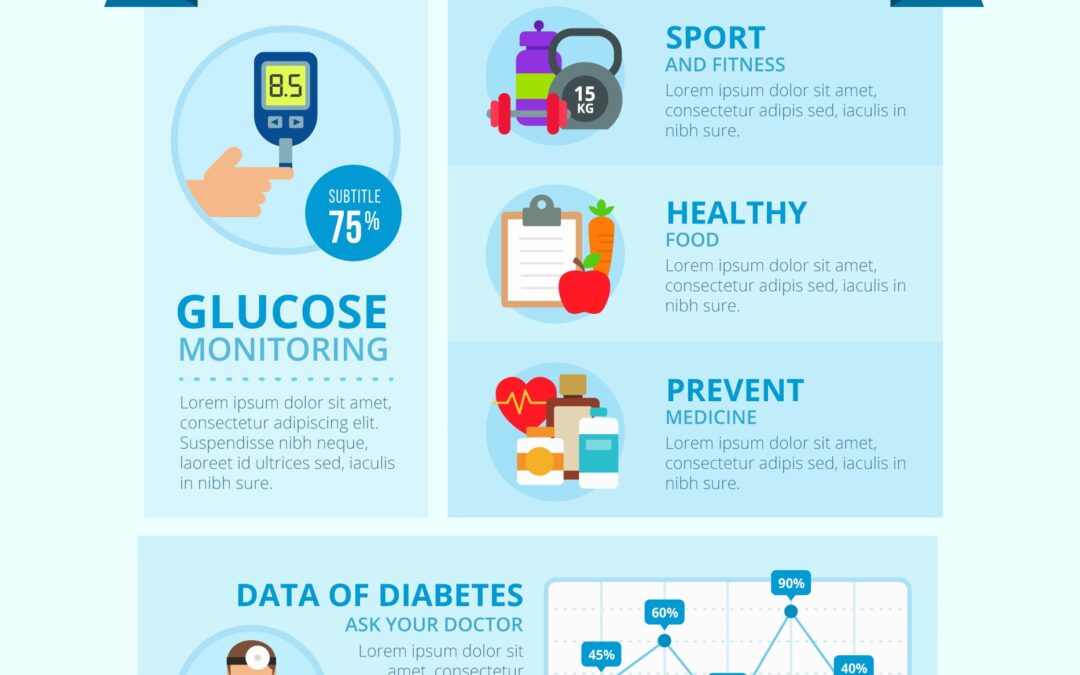Maintaining a Healthy Weight for Diabetes Patients
Maintaining a healthy weight is crucial for managing diabetes effectively. It can help improve blood sugar control, reduce the risk of complications, and enhance your overall well-being.
Here is a detailed guide on how diabetes patients can achieve and maintain a healthy weight.
Balanced Nutrition and Regular Physical Activity
Follow a Diabetes-Friendly Diet
Focus on a diet that controls blood sugar levels while providing essential nutrients. This includes a balance of carbohydrates, proteins, and fats.
Eat a Variety of Foods
Include a range of fruits, vegetables, lean proteins, whole grains, and healthy fats in your diet to ensure you get all the necessary vitamins and minerals.
Count Carbohydrates
Carbohydrates have the most significant impact on blood sugar levels. Learn to count carbs and choose complex carbohydrates, such as whole grains, legumes, and vegetables over simple carbs like white bread and sugary snacks.
Healthy Portion Sizes
Use smaller plates and bowls, and read food labels to manage portion sizes effectively. Be mindful of serving sizes, especially with high-calorie foods.
Frequent, Smaller Meals
Instead of three large meals, try eating five to six smaller meals throughout the day to keep blood sugar levels stable and prevent overeating.
Regular Physical Activity
Incorporate Aerobic Exercise
Aim for at least 150 minutes of moderate-intensity aerobic exercise, such as brisk walking, cycling, or swimming, every week.
Strength Training
Engage in strength training exercises at least two days a week to build muscle mass and improve your metabolism. This can include weightlifting, resistance band exercises, or body-weight exercises like squats and push-ups.
Stay Active
Make physical activity a part of your daily routine. Take the stairs instead of the elevator, walk during breaks, or engage in hobbies that require movement, such as gardening or dancing.
Behavioral Strategies ,Medical and Professional Support
Set Realistic Goals
Set achievable weight loss or weight management goals. Aim for steady, gradual weight loss rather than rapid weight loss, which can be harder to maintain.
Keep a Food Diary
Track your food intake to monitor what and how much you are eating. This can help identify eating patterns and areas where you can make healthier choices.
Mindful Eating
Pay attention to what you eat and avoid distractions like TV or smartphones during meals. Eat slowly and savor your food to recognize when you are full.
Healthy Snacking
Choose healthy snacks such as fruits, vegetables, nuts, or yogurt to keep hunger at bay between meals.
Medical and Professional Support:
Consult a Dietitian
Work with a registered dietitian who can provide personalized nutrition advice and meal planning tailored to your diabetes management needs.
Monitor Progress
Regularly check your weight, blood sugar levels, and other relevant health markers. Use these metrics to adjust your diet and exercise plans as necessary.
Medication and Insulin Management
Ensure that your diabetes medications or insulin are taken as prescribed. Discuss any weight management concerns with your healthcare provider, as some medications can affect weight.
Healthy Lifestyle Choices and Support Systems
et Enough Sleep
Aim for at least 7-9 hours of sleep per night. Poor sleep can affect hormone levels that regulate hunger and appetite, making it harder to manage weight.
Stay Hydrated
Drink plenty of water throughout the day. Sometimes, feelings of hunger can be mistaken for thirst.
Manage Stress
Practice stress-relief techniques such as mindfulness, meditation, or yoga. Chronic stress can lead to emotional eating and weight gain.
Support Systems
Join a Support Group
Connect with others who have diabetes through support groups or online forums. Sharing experiences and tips can provide motivation and support.
Family and Friends
Involve your loved ones in your weight management journey. They can offer encouragement and help you stay accountable to your goals.
Ongoing Education
Stay Informed
Keep up-to-date with the latest information on diabetes and weight management. Attend workshops, read relevant articles, and participate in educational programs.
By following these comprehensive guidelines, diabetes patients can maintain a healthy weight, better control their blood sugar levels, and lead a healthier, more balanced life.
Each step towards a healthier lifestyle is crucial for effective diabetes management and overall well-being.
